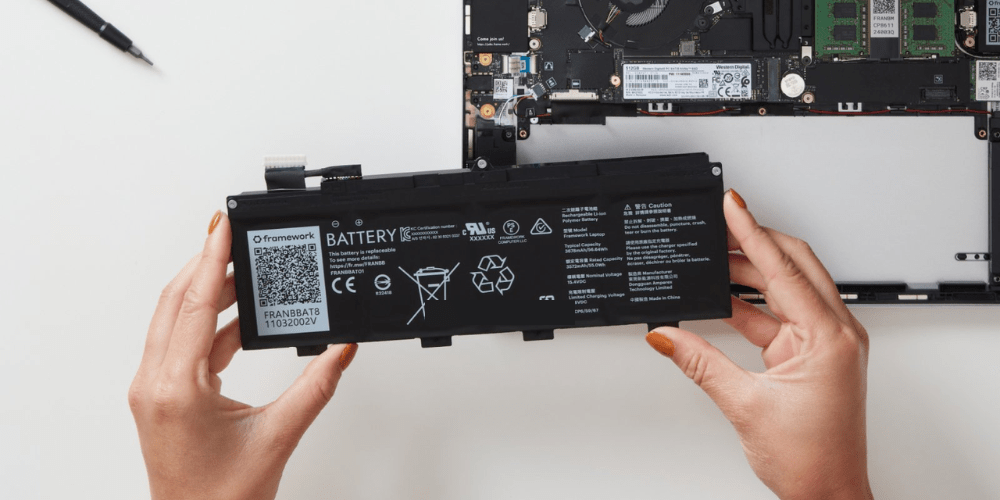Laptop batteries come in different types and each type offers a different level of performance. Here are some of the most common types of laptop batteries according to their performance:
Lithium-Ion (Li-ion) batteries:
Li-ion batteries are the most common type of laptop battery today. They have a higher energy density than Ni-Cd or Ni-MH batteries, which means they can store more energy in a smaller space. They also have a longer lifespan and are less susceptible to the memory effect. Li-ion batteries are also relatively lightweight and do not suffer from the same overheating issues as older battery types.
Lithium Polymer (Li-Po) batteries:
Li-Po batteries are a newer type of battery that offers even higher energy density than Li-ion batteries. They are also more flexible and can be made in various shapes and sizes. Li-Po batteries are commonly used in ultrabooks and other slim laptops because of their lightweight and thin design.
Solid State batteries:
Solid State batteries are a newer type of battery that are still in development. They promise to offer even higher energy density than Li-Po batteries and are expected to be more durable and safer. However, they are still expensive and not yet widely available.
All in all, laptop batteries come in different types that offer different levels of performance. Ni-Cd and Ni-MH batteries are older types that have lower performance compared to Li-ion and Li-Po batteries, which are the most common types used in laptops today. Get these and more from Batterie pour Ordinateur Portable
How much can a standard laptop battery last?
The lifespan of a standard laptop battery can vary depending on the type of battery, the laptop model, and how it is used. On average, a laptop battery can last between 2 to 4 years with normal usage, but it can also degrade faster if not properly maintained or if it is exposed to extreme temperatures.
Most laptop batteries have a lifespan of around 300 to 500 charge cycles. A charge cycle is defined as the process of charging the battery from 0% to 100% and then using it until it is depleted again. After 300 to 500 charge cycles, the battery may start to degrade and hold less charge than before.
However, it is important to note that battery lifespan is not just determined by the number of charge cycles. Other factors that can affect the lifespan of a laptop battery include:
Temperature:
Exposure to extreme temperatures can cause a laptop battery to degrade faster. It is recommended to keep the laptop and battery in a cool and dry environment.
Usage patterns:
How the laptop battery is used can also affect its lifespan. For example, if the laptop is frequently used while plugged in, the battery may degrade faster.
Maintenance:
Proper maintenance, such as keeping the battery contacts clean and fully charging and discharging the battery regularly, can also help prolong its lifespan.
In summary, a standard laptop battery can last between 2 to 4 years with normal usage and proper maintenance. However, its lifespan can be affected by factors such as temperature, usage patterns, and maintenance. If the battery is not holding a charge or is degrading faster than expected, it may need to be replaced.
